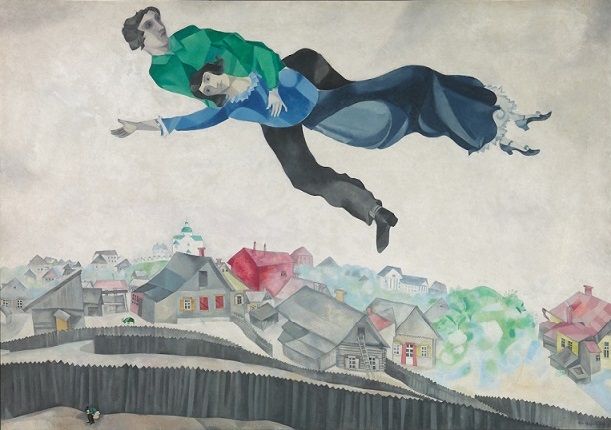Epoché. Husserl e lo scetticismo
DOI:
https://doi.org/10.13130/2240-9599/12072Abstract
According to Husserl there is not only a negative meaning of scepticism, in which reason dissolves itself in an exasperated relativism, but also a completely opposite one, in which the idea of scepticism is a necessary transition for rational argumentation that reflects the actual ability of radically questioning those certainties that are fideistically interwoven in the relationship between life and scientific knowledge. It is therefore equally unquestionable that the objective of such scepticism is to seek, with untiring fatigue, solid, persuasive terrain for one’s own argumentation that has the constant backdrop of revealing a new idea of subjectivity in its intrinsic tie with science and the common world of practical life. These two forms of scepticism, the anti-philosophical and the critical-rational therefore share an important trait: their unavoidable reference to subjectivity. However, whilst the discovery of the absolute intimacy of subjectivity with the world as a theatre of cognitive operations and of the creation of meaning fills the alleged fracture of a reality in itself that transcends the subject, it does not however eliminate the actual reasons of the concrete existence of the world and of the actual influence of such a reality on operations in the process of their creation. It is this that is the crucial question, the essential correlation between self and world, which progressively gains more and more importance in the evolution of Husserl’s notion of epoché and phenomenological reduction. A notion that corresponds to the critical exercise of reason, the necessary exercise of a scepticism that is never exhausted in itself as it never exhausts the view of the constantly changing meaning of the world in the wealth of its infinite essential traits.
Riferimenti bibliografici
Costa V., 2009: Husserl. Roma, Carocci, 2009.
Descartes R., 1642: Meditationes de prima philosophia (tr. it. Meditazioni sulla filosofia prima, Torino, UTET, 1994).
De Warren N., 2009: Husserl and Promise of Time. Subjectivity in Trascendental Phenomenology, New York, Cambridge University Press, 2009.
Fink E., 1966: Studien zur Phänomenologie 1930-1939, Den Haag, Nijhoff, 1966 (tr. it. Studi di fenomenologia 1930-1939, Roma, Lithos, 2010).
Fink E., 1976: Nähe und Distanz. Phänomenologische Vorträge und Aufsätze, München, Alber, 1976 (tr. it. Prossimità e distanza. Saggi e discorsi fenomenologici, Pisa, ETS, 2006).
Franzini E., 2014: Husserl e il mondo della vita, in V. Melchiorre (a cura di) Forme di Mondo, Milano, Vita e Pensiero, 2004, pp. 137-152.
Held K., 1966: Lebendige Gegenwart, Den Haag, Nijhoff, 1966.
Hume D., 1739: A Treatise of Human Nature (tr. it. Trattato sulla natura umana, tomo I, Bari, Laterza, 1982).
Husserl E., 1922 a: Logische Untersuchungen, I, Halle, Niemeyer, 1922 (tr. it. Ricerche logiche, vol. I, Il Saggiatore, Milano 1968).
Husserl E., 1922 b: Logische Untersuchungen, II/1, Halle, Niemeyer, 1922 (tr. it. Ricerche logiche, vol. II, Il Saggiatore, Milano 1968).
Husserl E., 1950: Cartesianische Meditationen und Pariser Vorträge, Husserliana, Band I (d’ora in poi HUA e numeraz. sgg.), Den Haag Nijhoff, 1950 (tr. it. Meditazioni Cartesiane e Lezioni parigine, Brescia, Morcelliana, 2017).
Husserl E., 1952: Ideen zu einer reinen Phänomenologie und phänomenologische Philosophie. Zweites Buch, HUA IV, Den Haag, Nijhoff, 1952 (tr. it. Idee per una fenomenologia pura e per una filosofia fenomenologica, Vol. II, Torino, Einaudi, 2002.
Husserl E., 1956: Erste Philosophie (1923/24), Erster Teil, HUA VII, Den Haag, Nijhoff, 1956 (tr. it. parziale, Storia critica delle idee, Milano, Guerini e associati, 1989).
Husserl E., 1959 a: Erste Philosophie (1923/24). Zweiter Teil: Theorie der Phänomenologischen Reduktion, HUA VIII, Nijhoff, Den Haag, 1956 (tr. it. Filosofia Prima. Teoria della riduzione fenomenologica, Soveria Mannelli, Rubbettino 2007.
Husserl E., 1959 b: Ergänzende Texte in Erste Philosophie (1923/24). Zweiter Teil: Theorie der Phänomenologischen Reduktion, HUA VIII, Nijhoff, Den Haag, 1959, pp. 191-506.
Husserl E., 1973 a: Die Idee der Phänomenologie, HUA II, Den Haag, Nijhoff, 1973 (tr. it. L’idea della fenomenologia, Milano, Bruno Mondadori, 1995).
Husserl E., 1973 b: Zur Phänomenologie der Intersubjektivität. Texte aus dem Nachlass, Dritter Teil: 1929-1935, HUA XV, Den Haag, Nijhoff, 1973.
Husserl E., 1973 c: Aus den Vorlesungen Grundprobleme der Phänomenologie in Zur Phänomenologie der Intersubjektivität. Texte aus dem Nachlass. Erster Teil. 1905-1920, HUA XIII, Den Haag, Nijhoff, 1973, pp. 111-194 (tr. it. I problemi fondamentali della fenomenologia, Macerata, Quodlibet, 2008).
Husserl E., 1976: Die Krisis der Europäischen Wissenschaften und die transzendentale Phänomenologie, HUA VI, Den Haag, Nijhoff, 1976 (tr. it. La crisi delle scienze europeee e la fenomenologia trascendentale, Milano, il Saggiatore, 1961.
Husserl E., 1977: Ideen zu einer reinen Phänomenologie und phänomenologische Philosophie. Erstes Buch, HUA III, Den Haag, Nijhoff, 1977 (tr. it. Idee per una fenomenologia pura e per una filosofia fenomenologica, Vol. I, Torino, Einaudi, 2002.
Husserl E., 1984: Einleitung in die Logik und Erkenntnistheorie, HUA XXIV, Den Haag, Nijhoff, 1984.
Husserl E., 1989: Aufsätze und Vorträge (1922-1937), HUA XXVIII, Dordrecht, Kluwer, 1989.
Husserl E., 2002: Zur phänomenologischen Reduktion. Texte aus dem Nachlass (1926-1935), HUA XXXIV, Dordrecht, Kluwer, 2002.
Kern I., 1962: Die drei Wege zur transzendentalphaenomenologischen Reduktion in der Philisophie Edmund Husserls, «Tijdschrift voor Filosofie», 2, pp. 302-349.
Landgrebe L., 1963: Der Weg der Phänomenologie, Gütersloh, Mohn, 1963 (tr. it. Itinerari della fenomenologia, Genova, Marietti, 1974).
Landgrebe L., 1982: Faktizität und Individuation: studien zu den Grundfragen der Phänomenologie, Meiner, Hamburg 1982.
Luft S., 2002: Einige Grundprobleme in Husserls unveröffentlichten späten Texten über Phänomenologische Reduktion, in D. Carr, C. Lotz (Hrsg.), Subjektivität–Verantwortung–Wahrheit: neue Aspekte der Phänomenologie Edmund Husserls, Frankfurt a. M, Lang, 2002, pp. 127-147.
Luft S., 2003: Die Konkretion des Ich und das Problem der Ichspaltung in Husserls phänomenologische Reduktion, in R. Kuhn, M. Staudigl (Hrsg), Epoché und Reduktion. Formen und Praxis der Reduktion in der Phänomenologie, Würzburg, Königshausen & Neumann, 2003, pp. 31-49.
Venier V., 2011: L’esistenza in ostaggio. Husserl e la fenomenologia personale, Milano, Franco Angeli, 2011.
Wittgenstein L., 1922: Tractatus logico-philosophicus, tr. it. di A. G. Conte, Torino, Einaudi, 1979.



